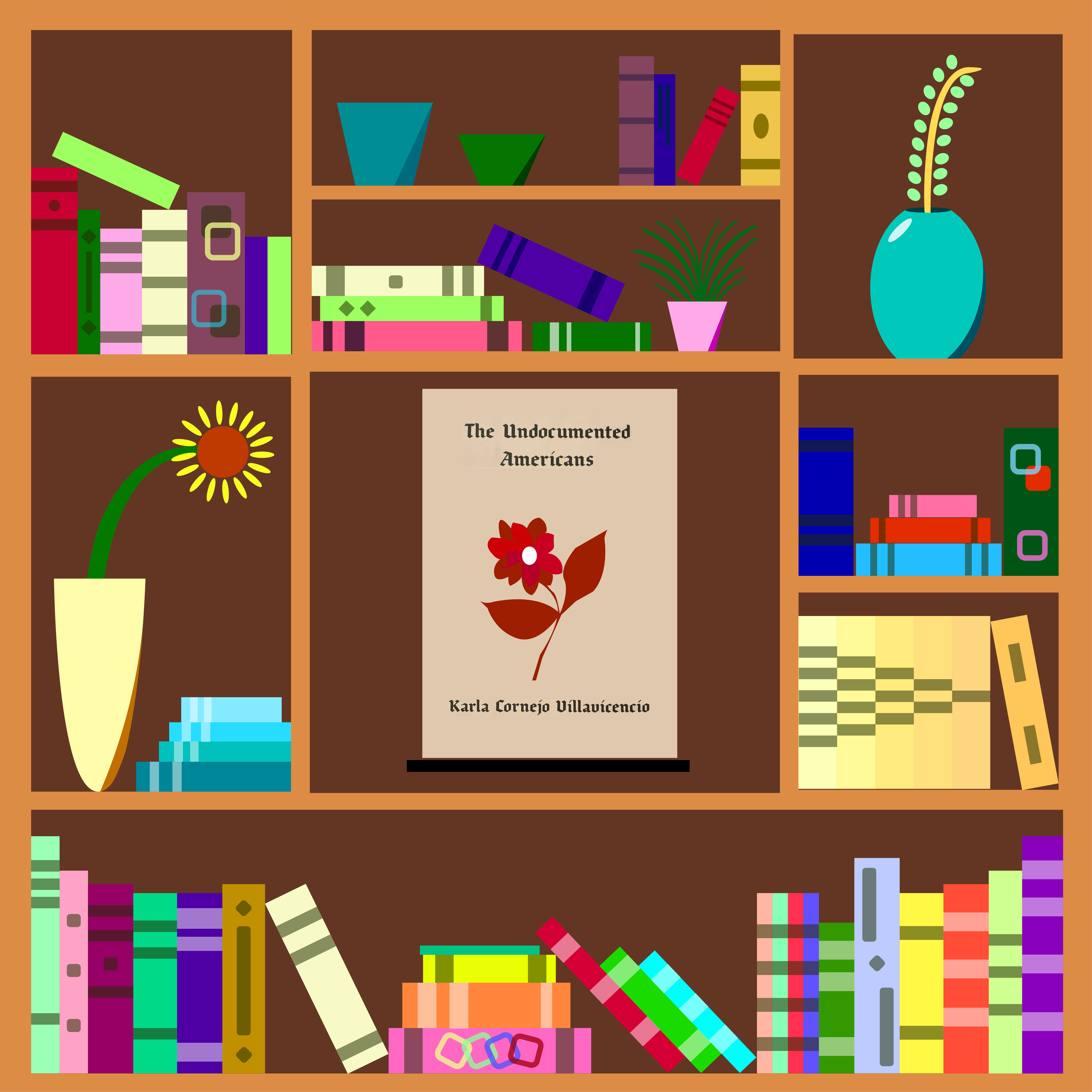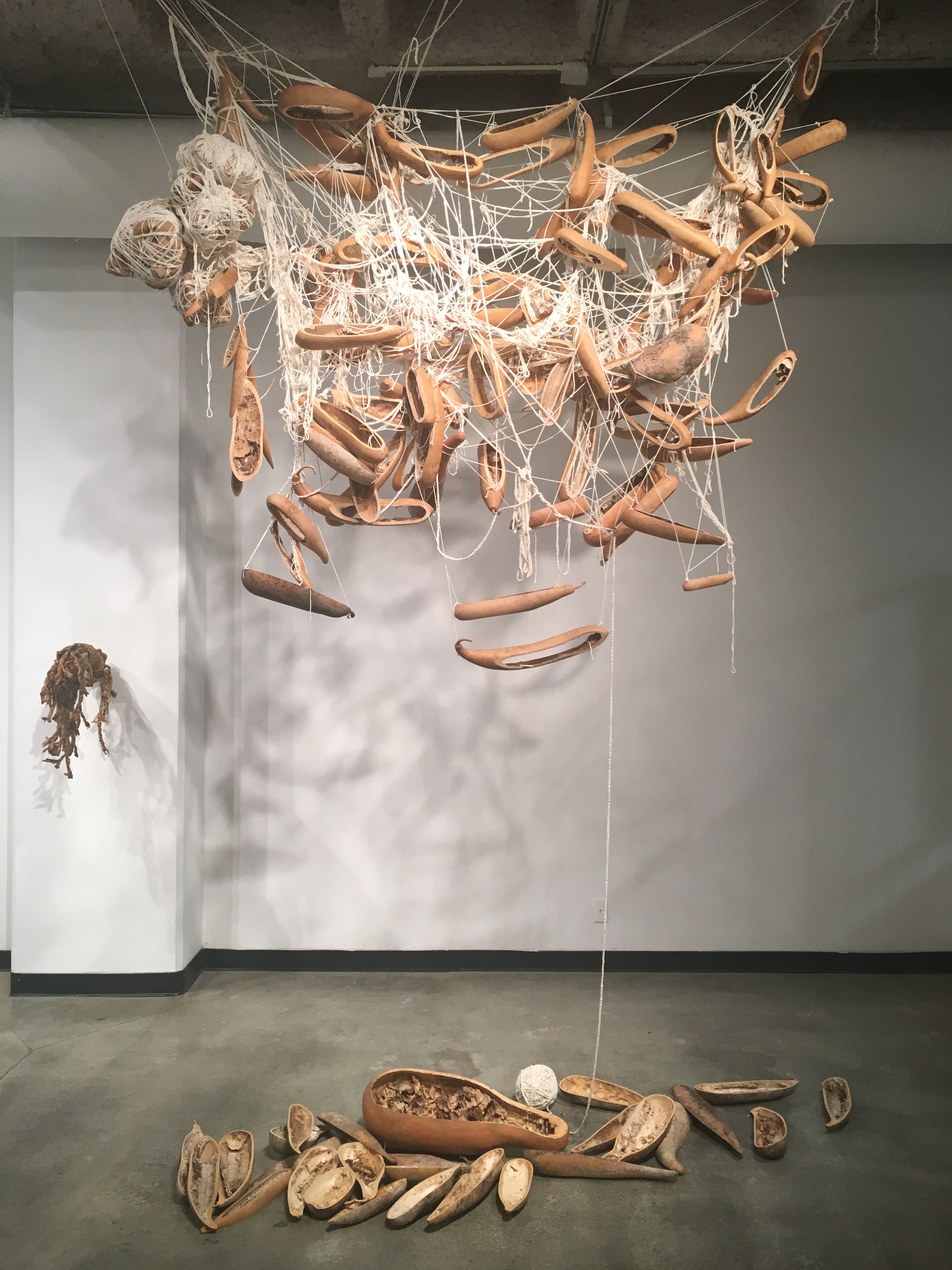In her new book, Karla Cornejo Villavicencio shares many stories, including those of her family. Illustration by Nova Blanco-Rico.
By Destiny Torres, Contributor
Joaquín crossed the desert between Mexico and the United States four times. His first steady job was on a boat in New York City where he saw planes crash into the World Trade Center on Sept. 11, 2001. Without hesitation, his employer rounded up Joaquín and the other men to head back to the city to help.
For two weeks, Joaquín along with other undocumented men and women, were in and out of Ground Zero, helping wherever they could. Then one day, his boss fired him and the other workers, making them sign contracts that most of them couldn’t read.
The next day, he huddled on a street corner at the break of dawn with other Black and brown day laborers who waited for possible employers looking for electrical, plumbing and other construction help.
In 2001, Joaquín and others like him faced racism, long workdays with no breaks, and often completed projects without getting paid.
Flash forward to the present day and little has changed. Millions of undocumented workers still endure conditions like this, and their stories are still ignored.
In her non-fiction book, “The Undocumented Americans,” Karla Cornejo Villavicencio takes back the narrative and tells the stories of undocumented folks living in America for the past 20 years whose perspectives are often untold because they don’t fit the American Dream myth.
Villavicencio, who was once undocumented, is a Harvard University graduate and is now studying at Yale for her doctorate degree. In her book, she recalls being asked to write a memoir about herself, to talk about her success story as an undocumented woman studying at an elite university.
Despite her successes in life, Villavicencio didn’t want to be another poster child for the DREAMer movement. She writes that as much as she appreciates the work that undocumented activists are doing, she wanted to tell the stories of people who don’t get hashtags or T-shirts.
“I wanted to tell the stories of people who work as day laborers, housekeepers, construction workers, dog walkers, delivery men,” Villavicencio writes in her introduction.
That is exactly what she did when she talked to people in New York about the physical and mental effects of their jobs cleaning up after Sept. 11. Villavicencio goes to Miami, Florida where she talks about undocumented peoples’ use of herbal medicine because they cannot afford or receive healthcare. She travels to Flint, Michigan where she speaks with frustrated undocumented people who were the last to become aware of the toxicity of their water.
In her book, Villavicencio wanted to tell stories that showed the hard truth of being undocumented in this country without beautifying it with examples of success and education because that is not that case for most people.
Villavicencio’s issue with the portrayal of undocumented people is that they are glorified as workers to be more pleasant sounding, as though they can be nothing else.
“I’ve heard them call us ‘undocumented workers’ as a euphemism, as if there was something uncouth about being just an undocumented person,” she writes. “We were brown bodies made to labor, faces pixelated.”
CSUDH Professor Michael Fraga teaches a Chicano/a studies course called Mexican and Latino Identities in the U.S. He said undocumented people in America are misunderstood, and that all generations of immigrants have to face nativist anti-immigrant Americans.
In his course, he teaches the history of immigration, like how many Mexicans were displaced after the Mexican-American War. Even then, he said, Americans who do not consider history do not understand the immigrant experience.
Professor Fraga explained that Americans with a nativist attitude see themselves as being superior to immigrants, so they treat them as inferiors.
“Mainstream media either glamorize [immigrants] or show their racist character,” Professor Fraga said. “In her book, [Villavicencio] is trying to bring a voice to the voiceless.”
One of my favorite things about her storytelling is seeing how dedicated Villavicencio became to the lives of the people she talked about.
She had coffee and donuts with the day laborers every morning for about a year. She was in constant communication with the people she wrote about whether that meant checking in with a text message or late-night phone calls about anything and everything.
Her devotion to learning these stories and making sure she gets every detail right is inspiring and is what makes her book so powerful.
There are not many books that do these stories or these people justice. Villavicencio does an outstanding job with her book for its honesty, personal commentary, and captivating storytelling.
For these reasons, “The Undocumented Americans” is rightly a National Book Award finalist this year. Villavicencio is currently in the middle of writing another book and since I was so enamored by this one, I can’t wait to see what else she has in store.

